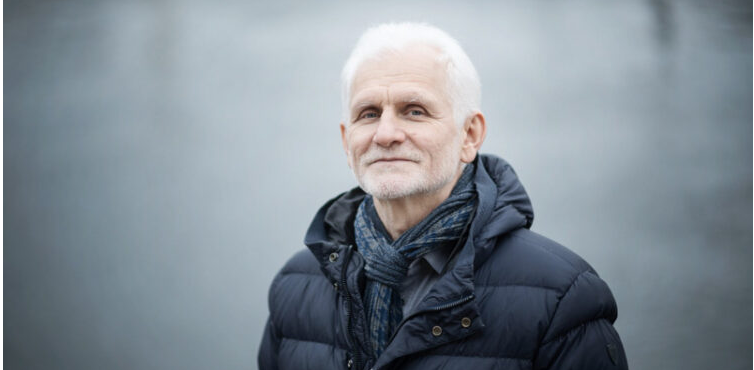
Meet Nobel Peace Prize winners: Jailed Belarusian activist; two rights groups

The Norwegian Nobel Committee has chosen to confer this year’s Nobel Peace Prize to jailed Belarusian human rights activist Ales Bialiatski, Russian human rights organisation Memorial and the Ukrainian human rights organisation, Center for Civil Liberties.
“The #NobelPeacePrize laureates represent civil society in their home countries. They have for many years promoted the right to criticise power and protect the fundamental rights of citizens,” the official Twitter handle of the Nobel Prize said.
“By awarding the Nobel Peace Prize for 2022 to Ales Bialiatski, Memorial and the Center for Civil Liberties, the Norwegian Nobel Committee wishes to honour three outstanding champions of human rights, democracy and peaceful co-existence in the neighbour countries Belarus, Russia and Ukraine. Through their consistent efforts in favour of humanist values, anti-militarism and principles of law, this year’s laureates have revitalised and honoured Alfred Nobel’s vision of peace and fraternity between nations – a vision most needed in the world today,” the official website of the Nobel Prize said.
Also read: French novelist Annie Ernaux wins the 2022 Nobel Prize for Literature
Who is Ales Bialiatski?
Sixty-year-old Bialiatski was one of the frontrunners of the pro-democracy movement that was seen in Russia in the early 1980s, and has since been an avid advocate of the country’s freedom from dictatorship.
In 1996, he founded the organization Viasna to support protesters who were jailed for demonstrating against constitutional amendments that invested the president with dictatorial powers. Ever since, Viasna has been working for the development of civil society through documentation of human rights abuses and has monitored elections.
His non-violent protests and campaigns against the dictatorial system and to ensure democratic rights of citizens led to Bialiatski’s imprisonment for several years.
Belarusian President Alexander Lukashenko has been controversially winning every presidential election in the country since its split from the Soviet Union in the 1990s. However, a similar victory in the August 2020 presidential elections was called out by the masses who took to the streets in protest. Viasna played a key role in the protest by defending the people’s right to assemble, human rights of those who were arrested and documenting the plight of political prisoners.
The same year Bialiatski won the Right Livelihood Award, which recognizes activists “offering practical and exemplary answers to the most urgent challenges.” In December, he was named among the representatives of the Democratic Belarusian opposition.
He, however, was arrested for tax evasion and has been in jail since July 14, 2021, in what human rights activists call a “politically motivated” move by the Alexander Lukashenko government to silence him.
“Government authorities have repeatedly sought to silence Ales Bialiatski. He was imprisoned from 2011 to 2014. Following large-scale demonstrations against the regime in 2020, he was again arrested. He is still detained without trial. Despite tremendous person hardship, Mr Bialiatski has not yielded an inch in his fight for human rights and democracy in Belarus,” the Nobel Prize website said in a profile on Bialiatski.
Bialiatski is among a handful of people who have put their life at stake in opposing the dictatorship of Lukashenko and fighting for democratic rights of Belarusians.
Memorial
The human rights organization was founded in 1987 in the run-up to the collapse of the Soviet Union to study and document human rights violations committed under Joseph Stalin’s regime.
Founded by Nobel Peace Prize laureate Andrei Sakharov and human rights advocate Svetlana Gannushkina among others, the NGO was conceived with the chief aim to remember the victims of the communist regime and believes in the motto that past crimes need to be examined to prevent new ones.
The organisation, which grew to become a vehement voice for human rights in Russia, established a centre of documentation of victims of Russia during Stalin’s regime while also collating information on political prisoners in Russian detention centres.
Also read: Chemistry Nobel 2022: Concept of ‘click chemistry’ simplified for you
Members of the organisation often face risks to their lives and have been victims of threats, imprisonment, disappearance and murder.
“When civil society must give way to autocracy and dictatorship, peace is often the next victim. During the Chechen wars, Memorial gathered and verified information about abuses and war crimes perpetrated on the civilian population by Russia and pro-Russian forces. In 2009, the head of the Memorial’s branch in Chechnya, Natalia Estemirova, was killed because of this work,” the Nobel Prize website wrote about the Memorial.
For its works which have often left the government red-faced on the international stage, the organisation has been dubbed a “foreign agent.” While authorities dissolved the organisation earlier this year, its members have refused to be cowed down by the move and say the show will go on.
Center for Civil Liberties
Founded in Kyiv in 2007 to ensure human rights and democracy in Ukraine, the Center for Civil Liberties works towards introducing legislative amendments to make Ukraine a full-fledged democracy.
The organization is the first in the country to receive a Nobel Prize.
Since the Russian invasion of Ukraine in February this year, the organisation has been engaged in documenting war crimes by Russian soldiers against civilians in Ukraine. It has also collaborated with international agencies to hold the guilty accountable.
Also read: Salman Rushdie emerges as bookies’ favourite for Literature Nobel
While the organization has been calling for Ukraine’s affiliation with the International Criminal Court, one of the chief aims is to update the Criminal Code of Ukraine.
The Center for Civil Liberties has also been campaigning for the release of illegally incarcerated prisoners in Russia as well as in Crimea and Donbas.

